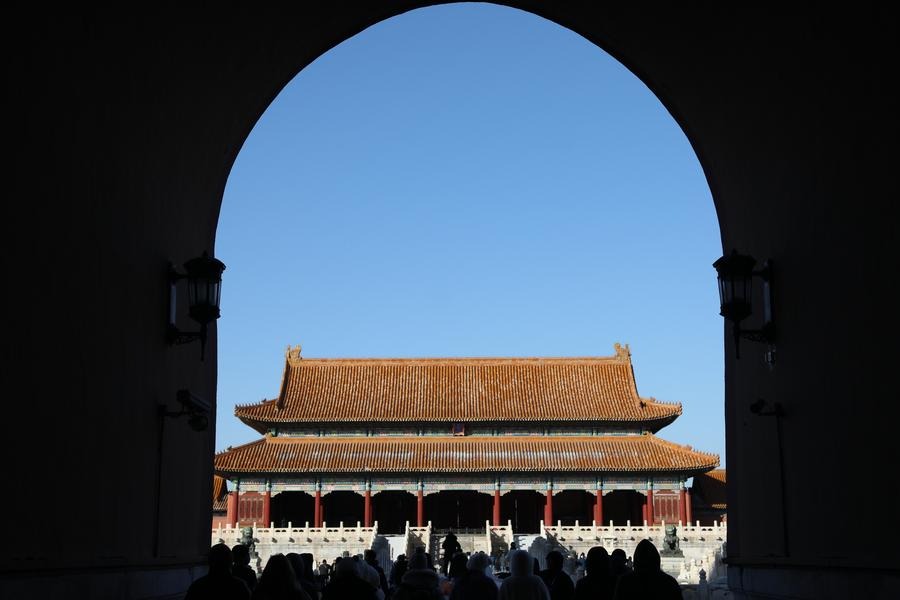The globalization paradox: Why trade war is self-sabotaging


In the heart of Cupertino, Apple engineers are scrambling to redesign the iPhone 17. Why? US semiconductor tariffs have ignited a fire under production costs.
But here's the kicker: your smartphone is a United Nations of tech, with its brain born in California, its face crafted in the Republic of Korea, and its body assembled in China. This intricate web of international collaboration is the hallmark of globalization, a system that has driven economic growth and innovation for decades.
But now, this delicate balance is under threat.
In April 2025, the US government imposed "reciprocal tariffs" on nearly all trading partners, with rates on Chinese goods soaring up to 145 percent—the highest in a century. Despite optimistic signals from China-US trade talks in Geneva, the damage to global trade may already be irreversible.
According to Bloomberg, global supply chain costs have surged by 40 percent. The WTO has issued a stern warning that US tariffs could shrink global trade by 1.5 percent in 2025, with North American exports plummeting by a staggering 12.6 percent.
The rampant politicization and weaponization of tariffs by the US, though cut back to some extent, is challenging the very principles of globalization.
The champion of globalization is now breaking it
After the WWII, the US engineered the Bretton Woods system and WTO to institutionalize free trade, cleverly embedding its economic dominance into multilateral trade rules.
This system fueled unprecedented growth: US GDP tripled from $10 trillion in 2000 to $27 trillion in 2023, while multinational giants like Exon and Apple thrived on global supply chains.
Yet today, Washington is dismantling the system it built. The reason? The rise of China and other developing nations has eroded US dominance, sparking a political backlash. Faced with pressure—particularly over Rust Belt job losses—American politicians have scapegoated globalization, casting China as a "free rider" gaming the system.
However, this narrative overlooks deeper structural flaws. Automation and corporate offshoring—not trade—have displaced workers, while tax policies favor capital over labor. The Fed reports that median household wealth stagnated for decades even as corporate profits hit records. With elites capturing the gains of globalization, wealth inequality has soared, with the wealthiest 1 percent holding 30.8 percent of US net wealth as of 2024.
Tariffs won't fix the real problems
The US obsession with trade deficits and "Made in America" is even more misguided.
Washington fixates on deficits in trade in goods while ignoring a $295 billion surplus in trade in services in 2024—up 283 percent since 2000.
Efforts to revive US manufacturing also face steep challenges. American blue-collar wages remain far higher than China's, while decades of offshoring have left supply chains deeply entrenched overseas.
Tariffs backfire by raising production costs, accelerating corporate relocation to Mexico or Vietnam. The result would only be a self-inflicted isolation from global value chains.
The world moves on
As the US retreats, others are redefining and empowering globalization.
According to the World Bank, the Belt and Road Initiative (BRI) proposed by China has reduced global trade costs by 1.8 percent, boosting global incomes by up to 2.9 percent. China also grants zero tariffs to all least-developed partners and pioneers cross-border digital currency payments across 18 nations.
The Global South is emphasizing shared growth—a vision aligned with globalization's original promise. The BRICS New Development Bank has funded numerous infrastructure projects in developing countries, such as the metro project in Mumbai, India, that are transforming urban mobility and driving regional growth. The African Continental Free Trade Area aims to create a single continental market for goods and services, poised to significantly boost intra-African trade.
Fade or adapt
History's verdict is clear: no nation can isolate itself from the tide of globalization.
As US ports languish under tariff-induced logjams, Shenzhen's Yantian Harbor bustles with ships carrying Chinese EVs bound for smart factories in Saudi Arabia and Brazil built under the BRI framework.
This duality captures globalization's crossroads: Should one cling to unilateral protectionism or embrace shared prosperity? Be part of this transformation or fade into irrelevance? The path forward lies not in futile resistance, but in adapting to economic realities and competing through innovation.
Globalization will continue. The choice rests with each individual nation.
Hui Fan is a Beijing-based observer of international affairs. The views don't necessarily reflect those of China Daily.
If you have a specific expertise, or would like to share your thought about our stories, then send us your writings at opinion@chinadaily.com.cn, and comment@chinadaily.com.cn.


































